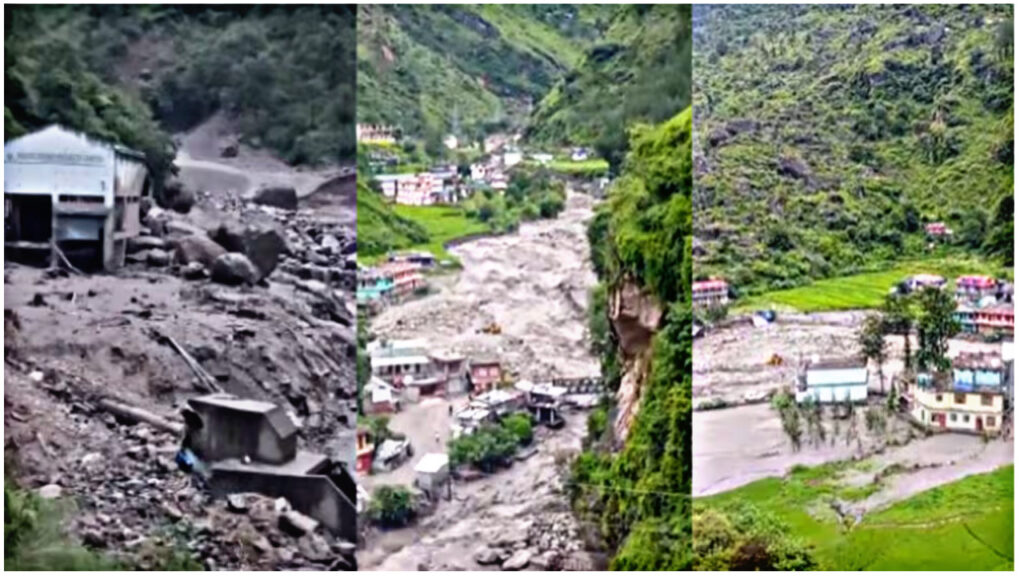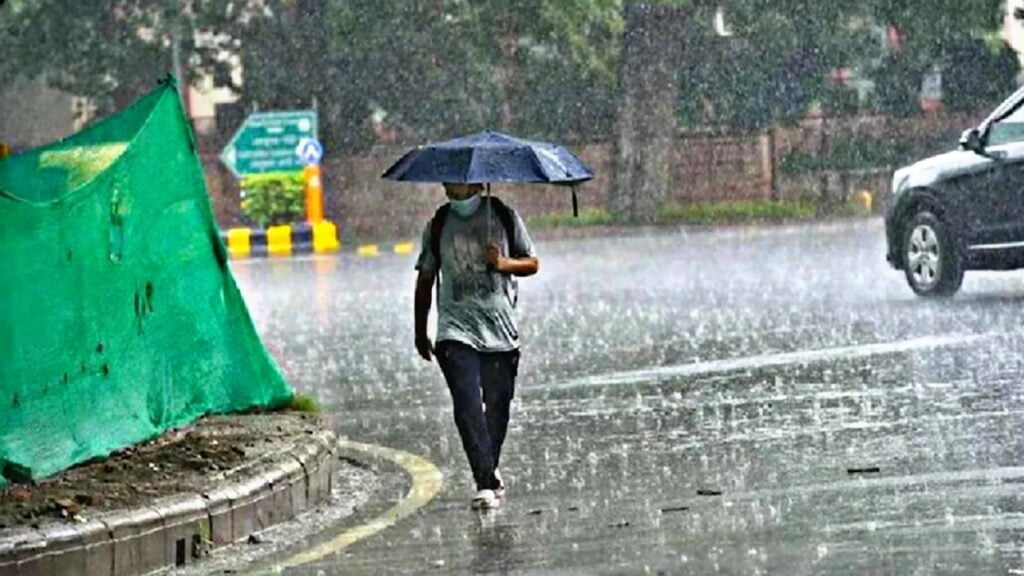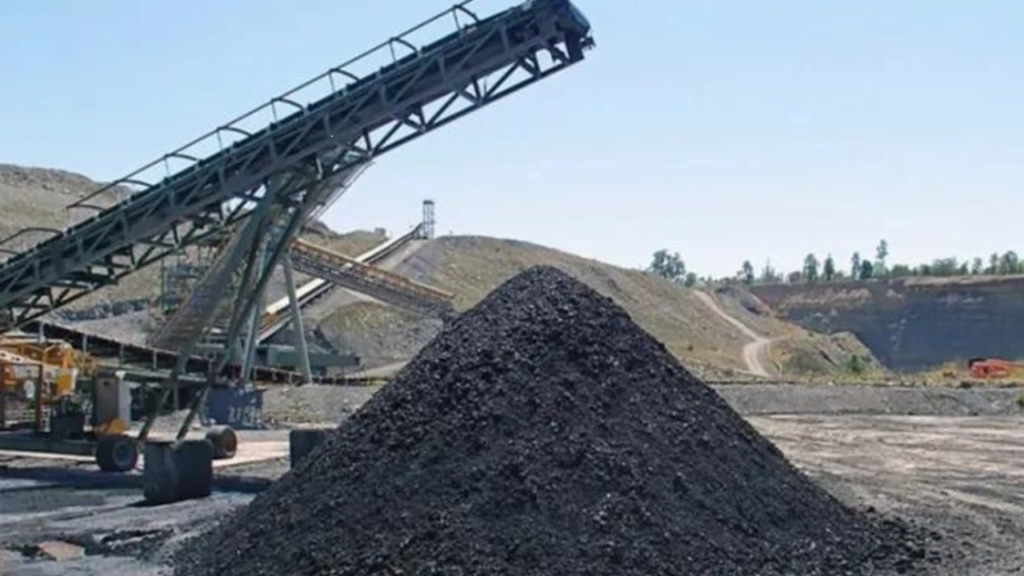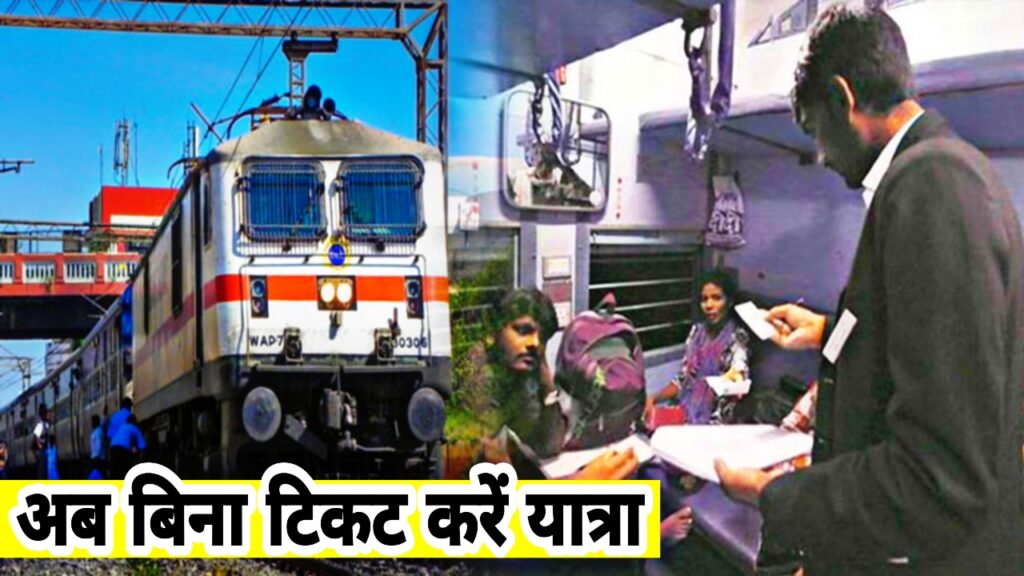Himachal Pradesh is once again facing the wrath of nature. Torrential rains and a sudden cloudburst have caused massive destruction in Mandi district, leaving behind a trail of tragedy and despair. The heavy downpour triggered flash floods, resulting in the loss of lives and widespread damage to homes, roads, and farmland.
In one of the most heart-wrenching incidents, the Jyunikhad stream in Mandi district turned into a raging river. A powerful wave of floodwaters swept through the Syanj panchayat area, claiming the lives of four family members across three generations a grandmother, great-grandmother, son, and grandson. Their home was completely washed away, leaving nothing but debris behind.
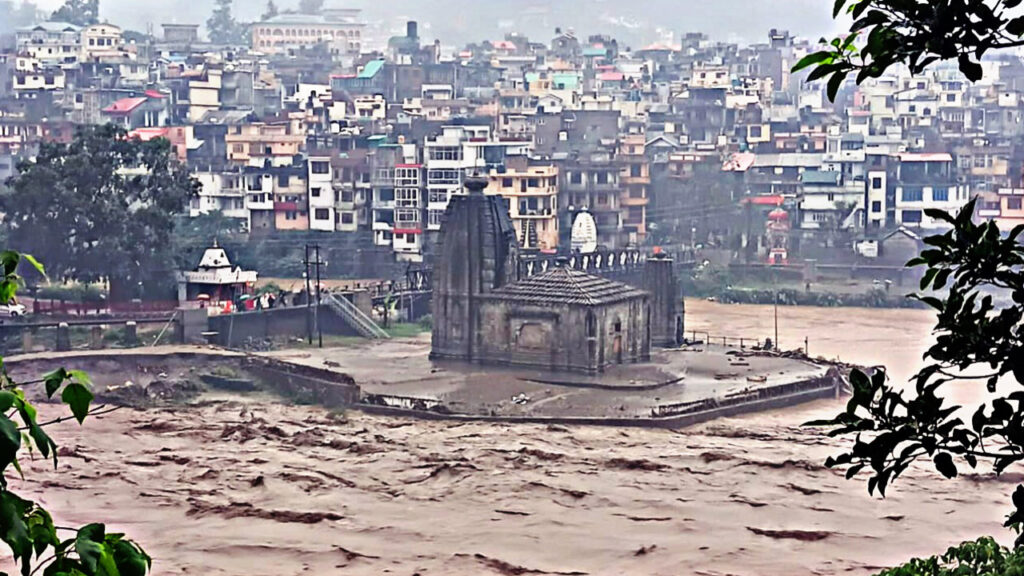
The regions of Dharampur, Karsog, Gohar, and Thunag were also severely affected. Entire houses were uprooted and carried away by the water. Families were forced to flee for their lives as the deluge came without warning, giving them no time to save their belongings. Roads were blocked, vehicles submerged, and fields destroyed as water gushed through villages, damaging crops and livestock.
Over 400 roads across the state have been closed due to landslides, flooding, and road collapse with Mandi district alone accounting for more than 240 of them. This has cut off many rural areas from basic services and emergency aid, making rescue operations extremely challenging for authorities.
Visuals from the affected areas are shocking. Roads have crumbled, bridges have been swept away, and homes now lie in ruins. The aerial and on-ground photographs circulating on social media reveal the true scale of the devastation muddy torrents flowing through towns, broken electricity poles, and families trying to salvage whatever little is left.
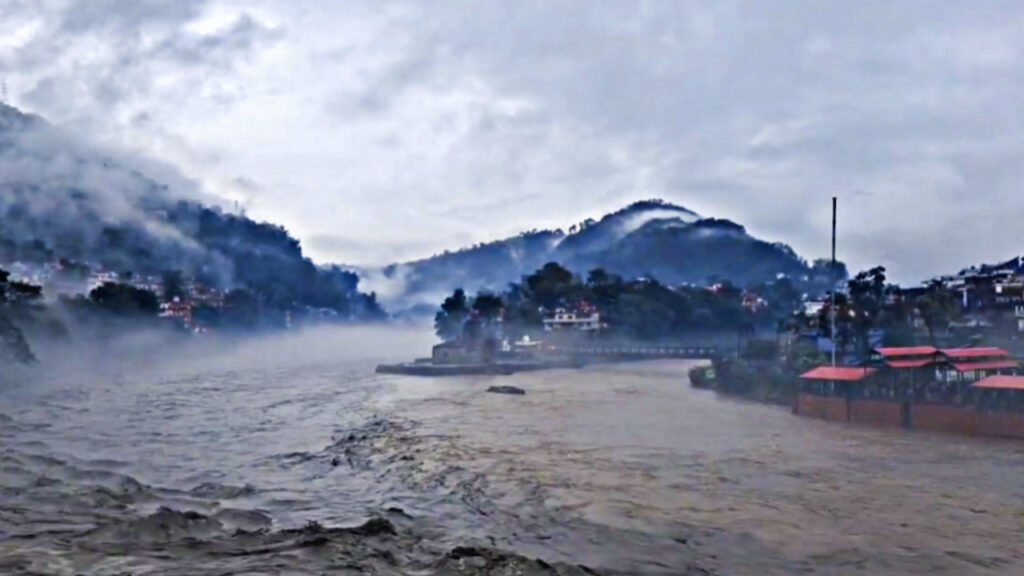
The state government has mobilized disaster response teams and helicopters for rescue operations. Relief camps are being set up to accommodate displaced families, while efforts are underway to restore connectivity and bring aid to stranded villagers.
This catastrophe serves as a stark reminder of the increasing unpredictability of weather patterns in the Himalayan region. Experts believe that unchecked construction, deforestation, and climate change are aggravating the impact of such natural disasters.
As Himachal reels under this tragedy, the entire nation watches in shock and sympathy. What’s needed now is not just immediate relief but also a long-term plan to make these regions more resilient against future calamities.
As Himachal mourns its losses, the focus now must shift to recovery and future preparedness. The need for better disaster management, stronger infrastructure, and sustainable development has never been clearer. This flood has left a scar that will take time to heal but it also brings with it an urgent message: nature must not be ignored.

